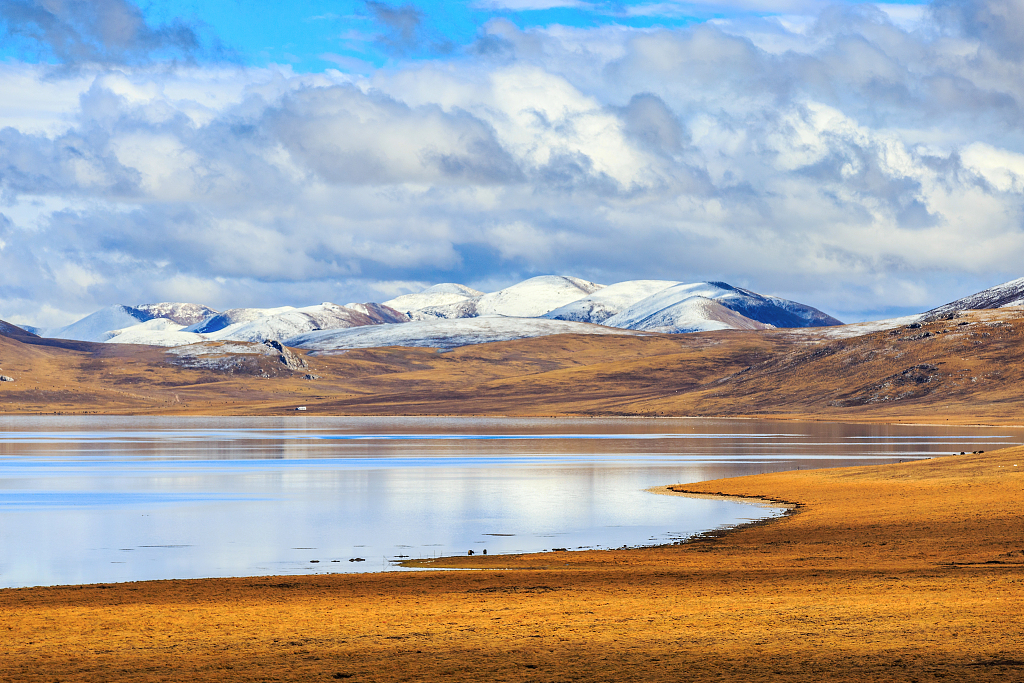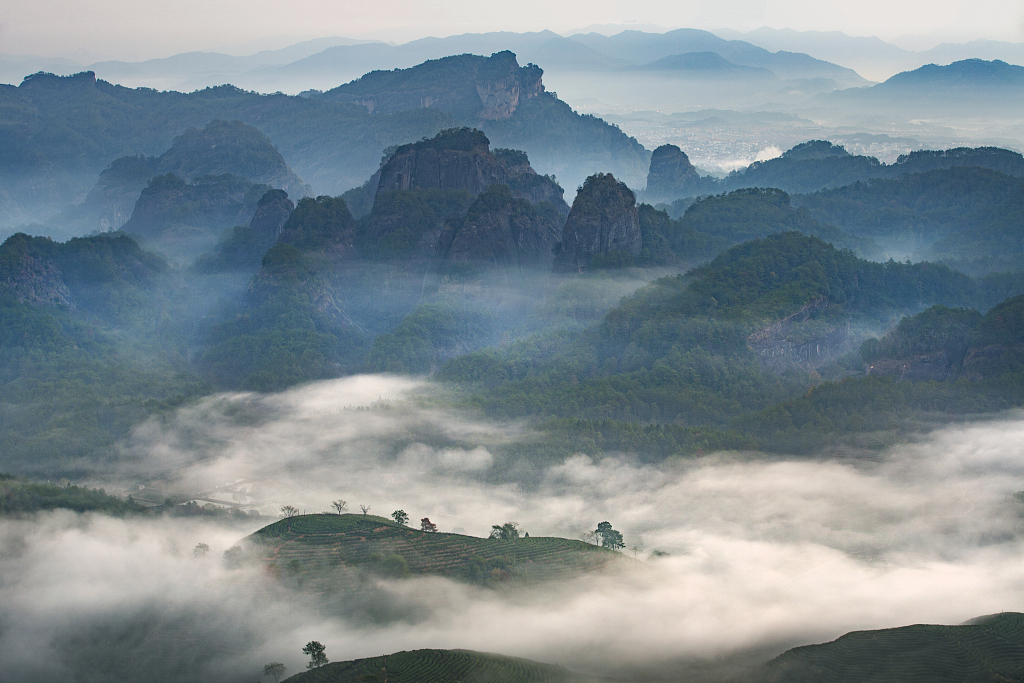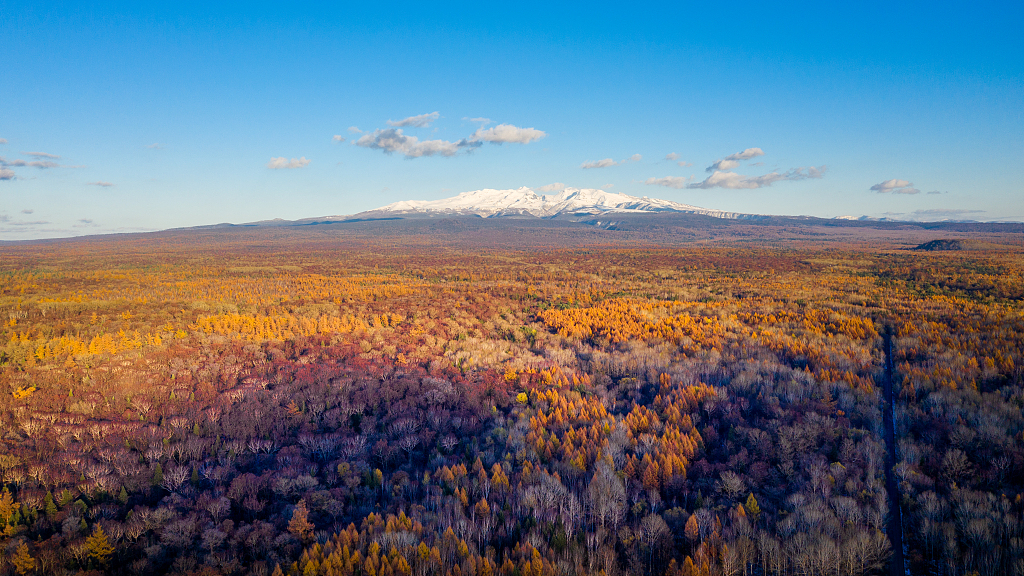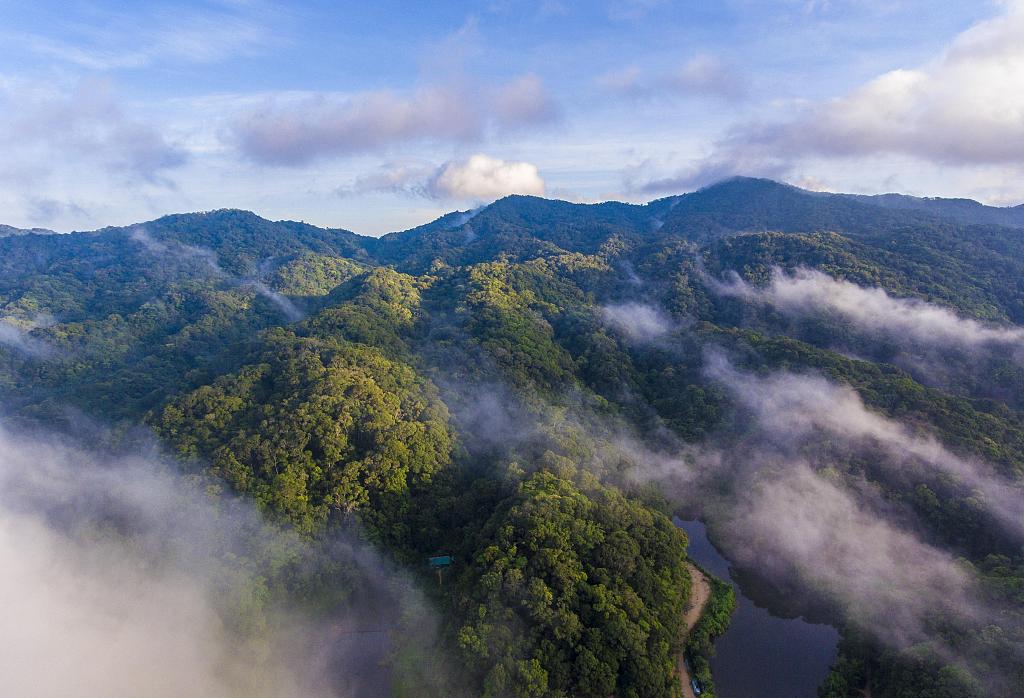China's first post-epidemic May Day holiday is underway. The sharp rebound in tourism had the China Tourism Academy predict that over 240 million passenger trips will be made during the five-day period, surpassing the 2019 level for the same holiday. At the same time, complaints over ticket sold-out, traffic jams and thronging crowds accompany the record-high holiday travel rush. If you ever want a switch to another holiday mode, China's first ten national parks could be a perfect option.
For an area to become the first national park in a large country like China, it must have something special, and Sanjiangyuan in northwest China's Qinghai Province has plenty. Sanjiangyuan, also known as the "water tower of China", literally means "the source of three rivers": the Yangtze, Yellow and Lancang rivers. Besides the unique landscape featuring giant snow mountains, roaring rivers, plateau lakes and vast grassland, tourists are offered unique experiences, for example, tracking snow leopards, a rare big cat under first-class state protection. And snow leopards are just one of the 69 wild animal species under state protection in the area.

Sanjiangyuan National Park in northwest China. /VCG
Sanjiangyuan National Park in northwest China. /VCG
You might see a cute giant panda in black and white across the glass doors in a zoo, but have you seen a wild one? The Giant Panda National Park reportedly has over 1,300 wild ones of the species deemed as a national treasure. Somewhere in the mountains, the bear might be chewing bamboo shoots or playing with the snow, and tourists might be able to get a glimpse. Besides giant pandas, the lush forests are also home to other protected animals, including the golden snub-nosed monkeys. Reports say there are 3,446 species of seed plants, 641 species of vertebrates, 116 species of wild animals and 35 species of wild plants under state protection in the park.

Sichuan golden snub-nosed monkeys. /VCG
Sichuan golden snub-nosed monkeys. /VCG
On April 30, the second day of the holiday, the tourist sites in Wuyi Mountains sold 133,700 tickets, which is an 8 percent increase compared to the same day in 2019. The area with forest coverage of 96.3 percent and the famous Wuyi tea lure tourists in to breathe the fresh air and pick tea leaves. Besides all that, the Wuyi Mountains National Park offers more. It's home to about 393 bird species, including some very rare and flamboyant ones, such as the silver pheasant.

While on the road, one can always expect a little surprise, but what about a close encounter with a Siberian tiger as a surprise? Reports of cars or taxis being stopped by a strolling big cat in the Northeast China Tiger and Leopard National Park have been making news from time to time in the past few years. Like this one:
Taxi driver runs into Siberian tiger in NE China
However, if you are too scared of the big cats or not lucky enough to see them, the national park could bring you other equally unique experiences, such as hiking in the primitive forest or kayaking in the winding creeks.

Northeast China Tiger and Leopard National Park. /VCG
Northeast China Tiger and Leopard National Park. /VCG
Southward to Hainan Tropical Rainforest National Park in the southernmost province of China, the vast rainforest has some endemic creatures hidden, for example, the Hainan gibbons. Known as the world's rarest primate, the Hainan gibbons have been listed as critically endangered by the International Union for Conservation of Nature. Last year's data show that there are only 36 of the gibbons in the entire world and they all live within the national park. The primates gather every morning and sing together. You have to be super lucky to see the seclusive animal yourself but listening to their calls at the foot of the mountain is not impossible at all. Imagine waking up in the morning to the sounds of the world's only 36 Hainan gibbons whistles. Wouldn't that be a brilliant experience?

Hainan Tropical Rainforest National Park. /VCG
Hainan Tropical Rainforest National Park. /VCG
(All images via VCG)
(If you want to contribute and have specific expertise, please contact us at nature@cgtn.com.)